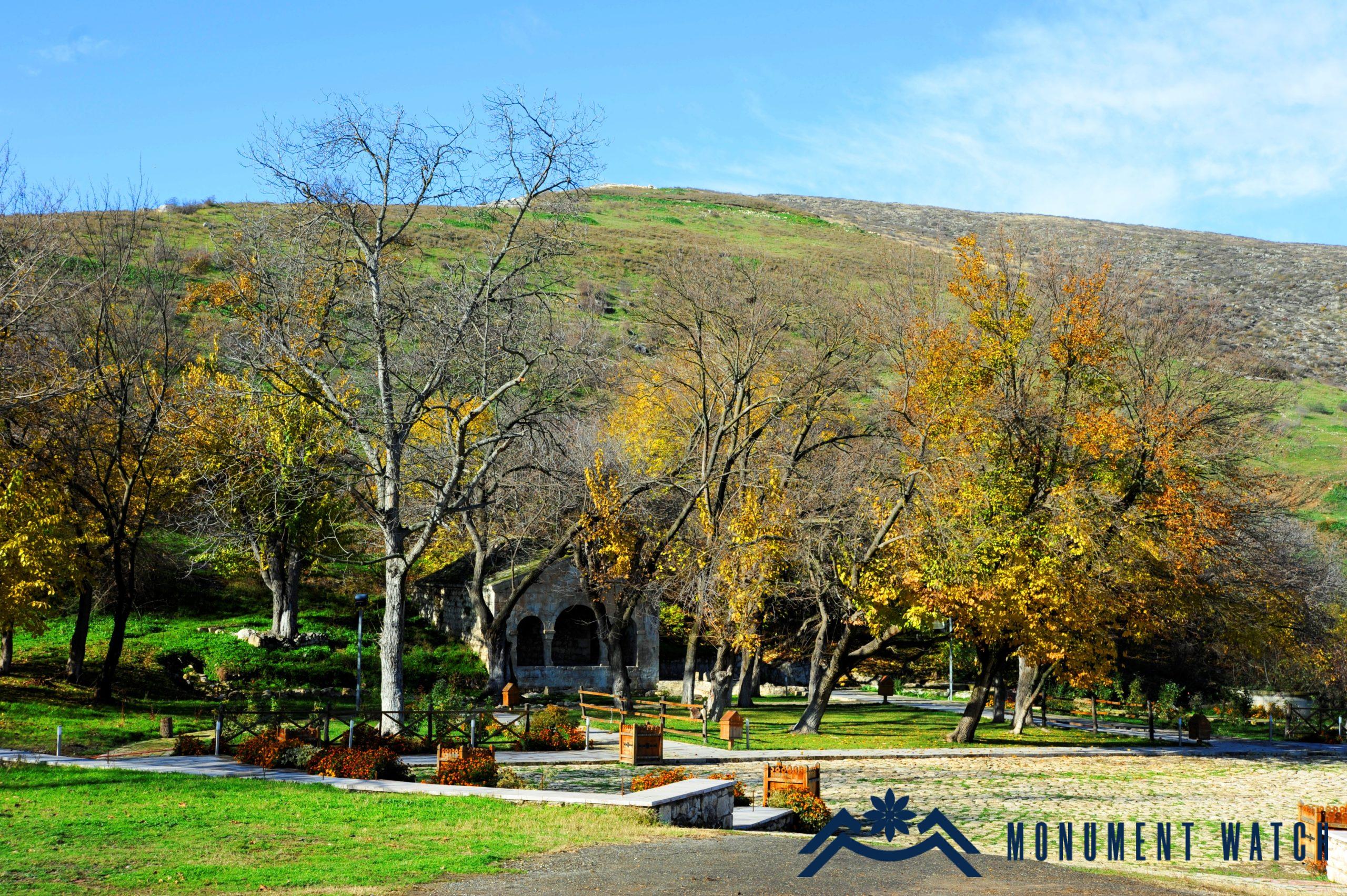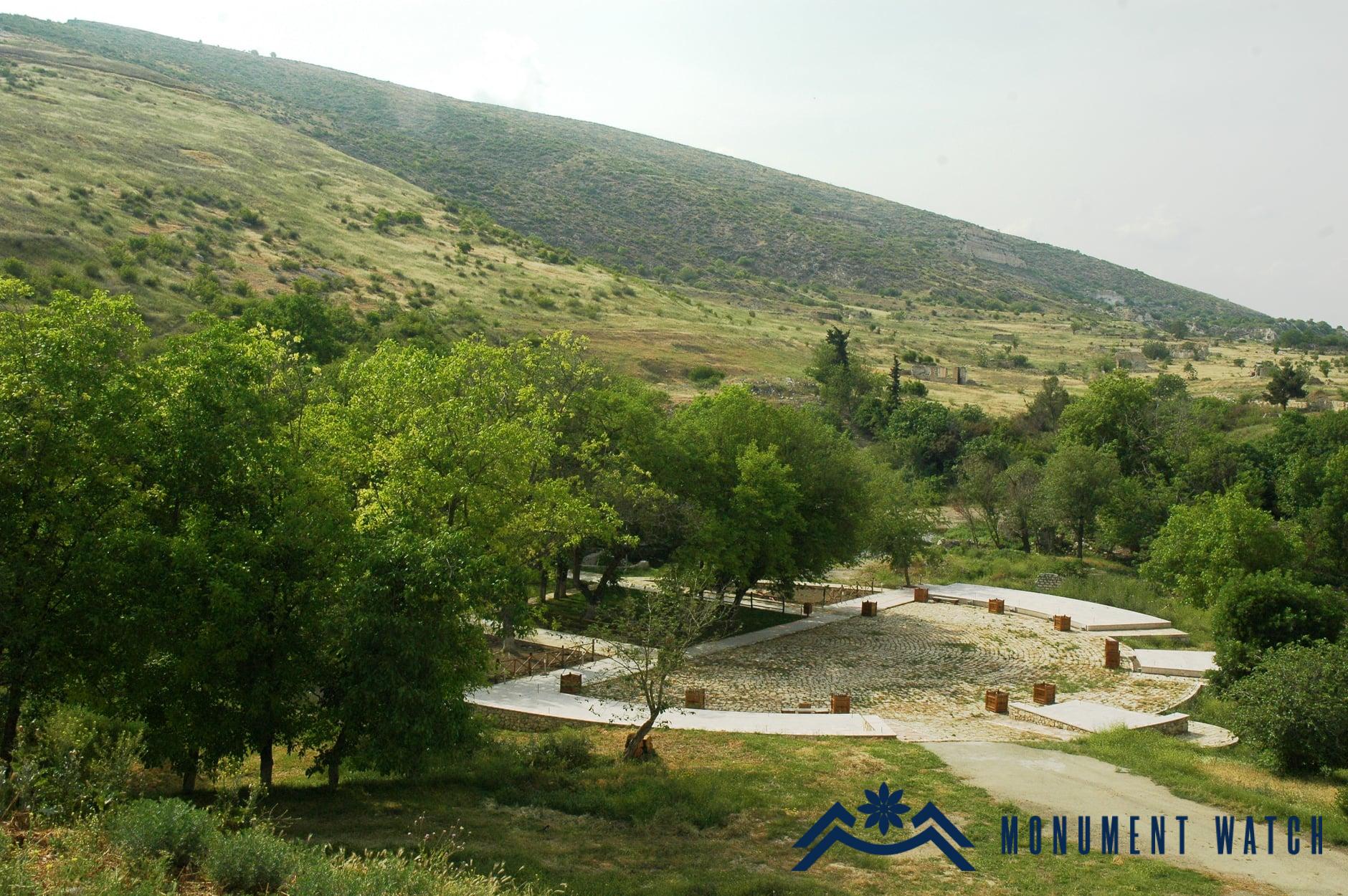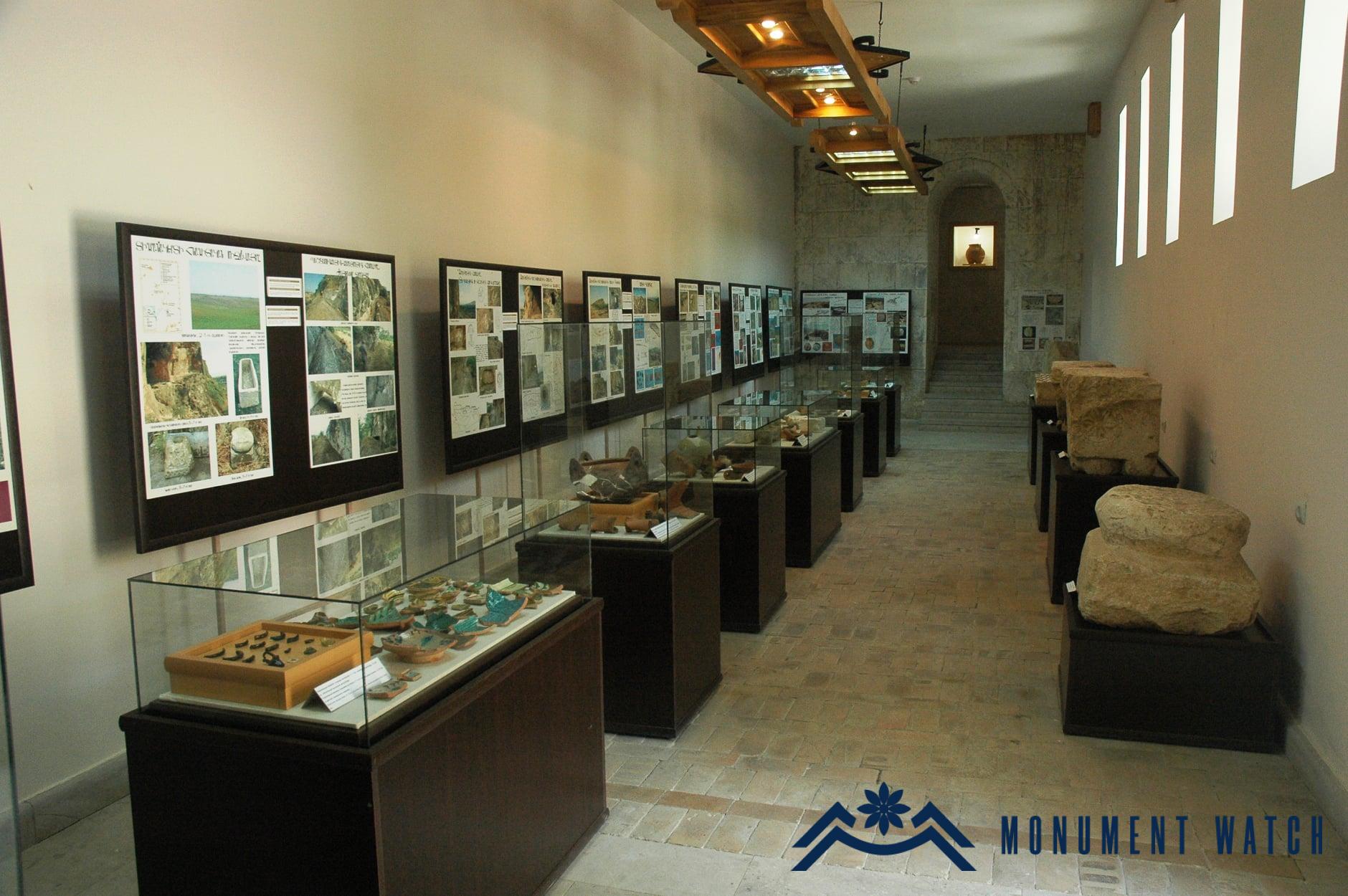Azerbaijanis turned the Park of Royal Springs of Tigranakert into a barbeque restaurant
After the 44-days war, the ancient city of Tigranakert of Artsakh went under Azerbaijan's control. On October 31, 2021, Azerbaijani TV journalist Saadat Mamedova published a video on her Youtube channel, showing with special pride that the Park of Royal Springs has been turned into a barbeque area. Next to the pool, excavated by the archaeological expedition of Tigranakert, Azerbaijanis have built a concrete platform to set up barbeque grills there. One of those was placed right on the edge of the excavated pool.
Several decades ago, in the Soviet period the Azerbaijanis turned the fortress, built in the middle of the 18th century and located nearby, into a restaurant. So, the practice of the transformation of cultural and historical monuments into barbeque and kebab restaurants is their old tradition.
Noteworthy, that before the 44-day war the fortress was home to the Tigranakert Archaeological Museum, and the territory of the Park of Royal Springs was landscaped and served as a platform for cultural events.
Our response
By turning the Park of Royal Springs into a barbeque restaurant, Azerbaijan violates the history and integrity of the cultural heritage, making it impossible to transmit the heritage in its original form to the future generation. That contradicts the principles of international conventions, including the UNESCO Convention on World Cultural and Natural Heritage, the Nara Document of Authenticity adopted in 1994 in Japan, the document signed in 2017 by ICOMOS in New Delhi, as well as various documents of other international structures.
According to the Second Protocol of the Hague Convention of 1954 for the Protection of Cultural Property in the Event of Armed Conflict (1999), Article 2, point C “any alteration to, or change of use of, the cultural property which is intended to conceal or destroy cultural, historical or scientific evidence” is prohibited.
According to it, Azerbaijan also violates the provisions of the 2001 convention "On the protection of cultural diversity" and 2005 "On the protection and promotion of the diversity of cultural expressions", of which it is a member.
The change of the functional purpose of the cultural heritage violates the UNESCO provisions of the "Convention for the Safeguarding of the Intangible Cultural Heritage" (2003). According to Article 11, Parties undertake to respect intangible values, regardless of their origin and function.
Photographs
1, 2 – The Park of Royal Springs of Tigranakert,
3 – One of the halls of the Tigranakert Archaeological Museum before the 44-days war.


